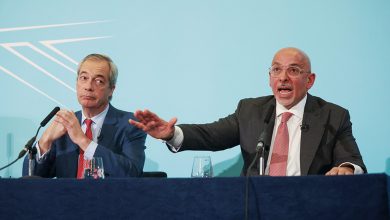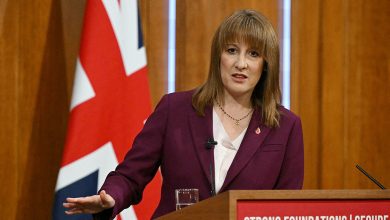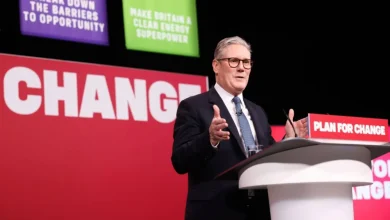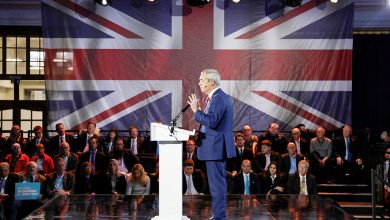Reeves to test faith of investors and party with tax-heavy budget

British finance minister Rachel Reeves is likely to announce tens of billions of pounds of new tax increases on Wednesday in a budget that puts her credibility on the line both with bond investors and with lawmakers demanding more welfare spending.
Little more than a year after ordering 40 billion pounds ($52.7 billion) of tax hikes – the biggest since the 1990s and which she promised would be a one-off – Reeves has been forced to look at further revenue-raising measures due to an expected downgrade of Britain’s economic prospects and higher debt costs.
Reeves said she was taking “fair and necessary choices” to improve the country and speed up economic growth but she recognised the unhappiness among voters.
“I know that people feel frustrated at the pace of change or angry at the unfairness in our economy,” she said in comments shared with media ahead of her speech.
“I have to be honest that the damage done from austerity, a chaotic Brexit and the pandemic were worse than we thought.”
Reeves said she would help families with the cost of living, cut hospital waiting lists and reduce debt. “I will not return Britain back to austerity, nor will I lose control of public spending with reckless borrowing,” she said.
WILL THE BUDGET FIX THE PUBLIC FINANCES?
Economists expect between 20-30 billion pounds of tax hikes when she addresses parliament at about 1230 GMT.
But that might not be enough to put the public finances on an even keel, given Britain’s slow economic growth and mounting demands for public spending, ranging from rising defence costs to the toll of an ageing population.
Although Britain is on course to have the second-strongest growth among the Group of Seven nations this year, according to the International Monetary Fund, at 1.3% it would be way below the norm of 2.5% before the 2007-08 global financial crisis.
“Our central concern is the budget will fail to resolve the drag from uncertainty and fear of future tax hikes that is weighing heavily on UK investment and growth,” Krishna Guha and Marco Casiraghi at investment bank Evercore said in a note to clients.
They added that an inconclusive budget might fuel speculation about the future of Prime Minister Keir Starmer, who is floundering in opinion polls despite the centre-left Labour Party’s big election victory in 2024.
Reeves said in her first budget last year that she was returning stability to the public finances after the shocks delivered by Brexit, the coronavirus pandemic and the “mini-budget” crisis of former Conservative Prime Minister Liz Truss.
But those plans are likely to be holed by a downgrade of Britain’s economic outlook – set to be delivered alongside the budget – from the government’s fiscal forecasters, who have been overly optimistic for years about productivity growth.
That, along with higher-than-expected borrowing costs, means Reeves would be off course for her target of balancing day-to-day spending with tax revenues by 2030 unless she resorts to another big round of budget pain.
She is expected to drag more workers into the income tax net and make more of them pay higher rates by extending a freeze on threshold levels, something she said last year she would not do because of the hit it would deliver to households.
Owners of expensive homes and gamblers are likely to pay more in tax, drivers of electric cars reportedly face a new mileage charge and the generosity of pension incentives looks set to be scaled back, among other measures.
Reeves also wants to add to her “headroom” for meeting her budget targets. Last year, she only gave herself 9.9 billion pounds of leeway, making investors jittery.
Bond dealers polled by Reuters expect she will seek to raise this to nearer 17 billion pounds.
Investors say Reeves must come up with a convincing set of tax increases that boost revenues sooner rather than later.
“For the government to retain fiscal credibility it must deliver a material reduction in the fiscal deficit over the next two years,” Andrew Wishart, an economist at Berenberg, a bank, said.
Adding to the headache for Reeves are calls from Labour lawmakers for an end to a two-child cap on welfare benefits paid to families which could add about 3 billion pounds a year to government spending.
INVESTORS WATCHING FOR CREDIBILITY OF PLAN AND FORECASTS
Mahmood Pradhan, a former IMF deputy director for Europe, said he was worried that investors might lose faith in the rigour of the fiscal forecasts, drawn up by the independent Office for Budget Responsibility, which underpin Reeves’ plans.
Government sources said this month that Reeves was able to drop a plan to increase income tax rates – which would have broken a promise to voters – because of better-than-expected forecasts drawn up by the OBR.
“If the markets don’t see this as credible we are at risk of entering into a vicious spiral which means higher gilt yields (and) higher debt costs,” Pradhan, who is now head of macroeconomic research at the Amundi Investment Institute, part of Europe’s largest asset management firm Amundi, said.
British borrowing costs are the highest among the Group of Seven economies. The yield on Britain’s 10-year government bonds stands at 4.53% compared with 2.67% for Germany and 3.41% for France.



